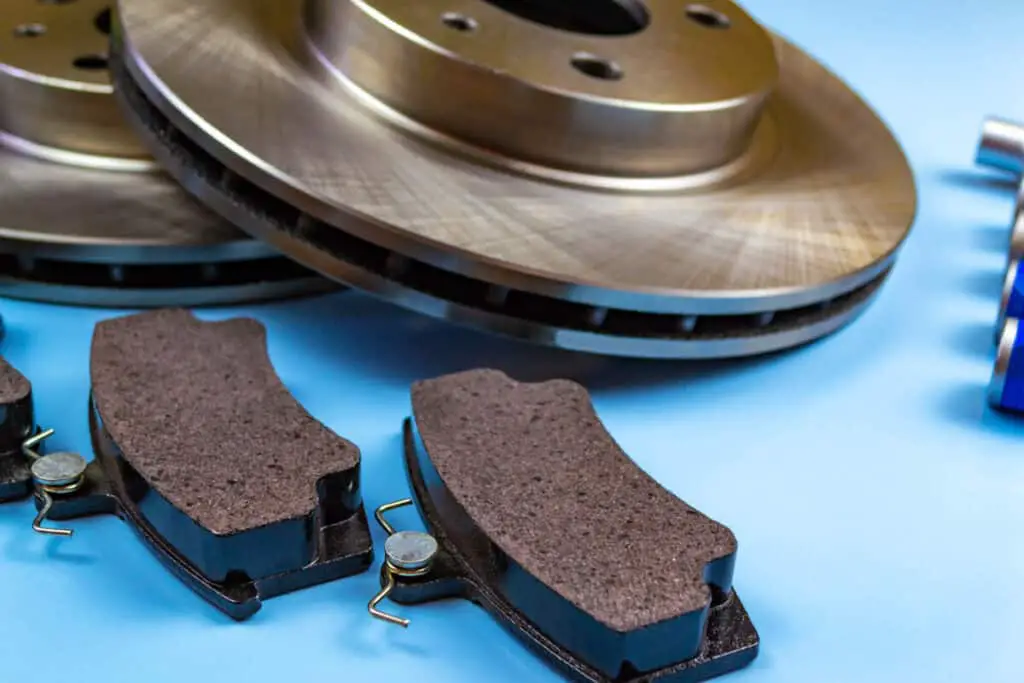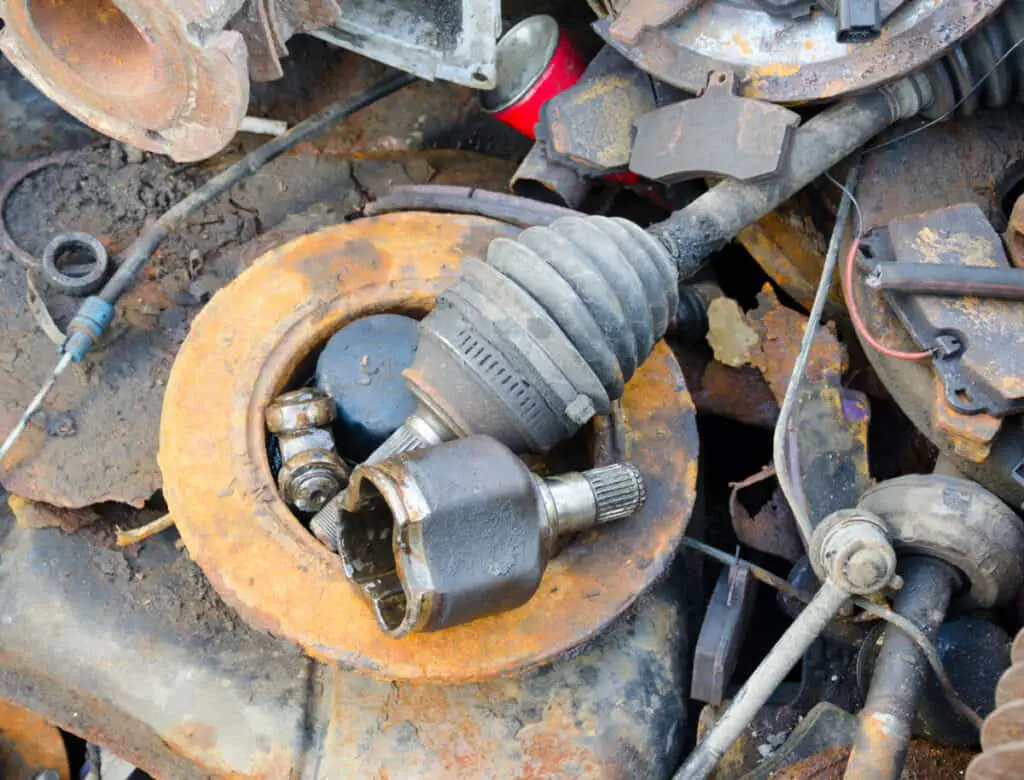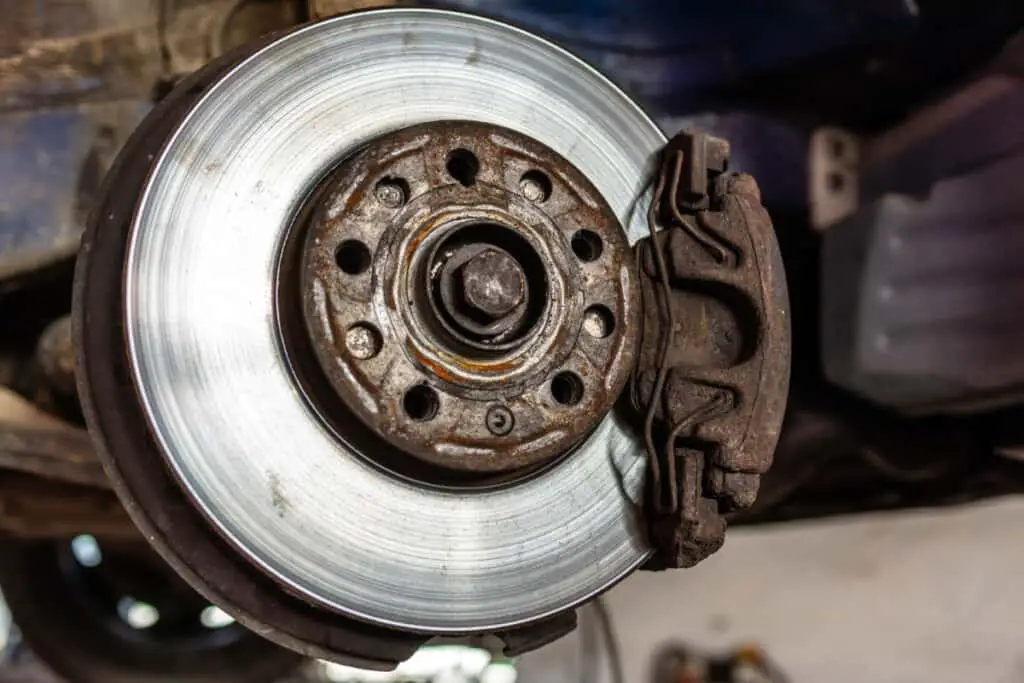
If you own a car, you’ll know that brake maintenance is one of your top priorities in terms of vehicle safety and longevity. Occasionally, you’ll need to replace both the rotors and the brake pads, so what do you do with those materials once you no longer need them?
Old rotors and brake pads can be recycled if they are made of pure metals like iron or steel. If brake pads contain asbestos, they are considered hazardous waste and should be disposed of through a local toxic waste facility. Alternatively, scrap yards will accept old rotors for reuse or recycling.
If you’re the type of person who prefers to save money by working on your own car, rather than taking it to an auto shop, then it is definitely worth knowing what to do with old parts you no longer need. Don’t just toss them in the trash; you may be surprised to learn the potential ways to reuse and repurpose things like old rotors and brake pads.
Can You Recycle Brake Pads?
If you get your brakes changed at a garage or auto shop, professional mechanics will take care of properly disposing of the brake pads for you. You won’t need to worry about them being thrown away since these facilities are typically connected with scrapyards and recycling units that specifically take care of old, used auto parts. Getting your brakes replaced at a shop can be expensive though, so if you plan on doing it at home, you may be wondering what to do with the brake pads yourself.
Whatever you do, do not throw the brake pads away. Because some brake pads still contain asbestos to absorb friction, they can actually be considered hazardous waste. If you are unsure whether your brake pads contain asbestos, the safest course of action is to just dispose of them, rather than try to recycle them. Contact waste management in your area to learn about locations and procedures for toxic waste dumps.
If your brake pads and rotors are definitely made out of solid metal and do not contain asbestos—and this is something you want to absolutely be sure about, so it would be wise to confirm with an auto dealer—then you can put them in any metal recycling bin in your area. Recycling facilities that process metal will sort through the pieces for proper and safe disposal.
Do not throw brake pads away with the regular garbage. Not only do they potentially contain hazardous substances, but they also take up to a century to break down. Materials that are not biodegradable take up precious space in landfills and create environmental problems like fire hazards, habitats for pest populations, and limitations on space for biodegradable waste.

Can You Recycle Rotors?
Rotors are typically made of solid metal, like cast iron, aluminum, or steel. These metals are recyclable, but cannot be recycled alongside other smaller pieces of metal. Because rotors are so large and so solid, they can damage the industrial machines that sort through materials to be recycled. This is why it is important to contact the correct facility in your area or to check with local auto retailers to see if they have on-site recycling drop-offs.
If your rotors are made of aluminum, never recycle them alongside aluminum cans. The machines that sort through aluminum cans are not built to handle the weight and size of a rotor, and it will damage the machine.
If you happen to have a high-end sports car, like a Ferrari or a Porsche, then your rotors are more likely made of ceramic than metal. Carbon-ceramic rotors come with countless functional advantages for high-performance vehicles, but the material is not recyclable.
There is some debate about whether or not you can actually recycle old rotors. Some assert that you can recycle steel or iron rotors in most large cities since there are likely facilities that accept and process them. Others argue that it is better to simply throw them away because recycling companies are also known to reject auto parts in spite of their precious metals. You can indeed throw away rotors since they are made of metals that are non-toxic.
“If they are made of steel or iron, then most large cities have locations where you can drop them off for recycling…. [If not,] throw them in the trash. Most garbage companies do not want automotive parts for recycling, despite the precious metals they may contain. Rotors are non-toxic anyway.”
TundraSolutions
When in doubt, you can always sell rotors at a scrapyard. The amount of money you will get for them depends heavily on what material they are made out of, where the scrap yard is located, the level of supply and demand, and even the time of year. To get the most money possible, try to separate materials that consist of different metals before bringing them to the scrapyard.
What Else Can I Do with Old Rotors?
Since rotors are solid metal, they can be repurposed in all kinds of crafts and projects. Rotors are sturdy, and their round, recognizable shape instantly evokes a certain stylistic ambiance when they’re repurposed in furniture or home décor.
Use an old rotor as the base of a lamp, for instance, or as the face of a clock for your garage or workshop. They also make great plant holders, tool stand bases, door stops, or waste bin platforms. Try cutting a rotor into fourths and welding flat pieces onto the right angle to make rustic-looking bookends, or secure the rotor to chains and make a light fixture for your patio. Depending on your preferred style, the repurposing possibilities are endless.
How Often Should I Replace My Brakes and Rotors?

Generally, brake pads should be replaced between every 10,000 to 20,000 miles, depending on how and where you most often drive. It’s important to change out your brake pads regularly in order to minimize wear. When brake pads get too worn down, they can damage your tires and brake system and can be dangerous because they won’t work as well. If there’s one thing on your car that you want to be reliable, it’s the brakes. Don’t skip brake maintenance!
Rotors have a much longer lifespan and can last up to 50,000, even 70,000 miles before needing to be replaced. Carbon-ceramic rotors are designed to last for the entire lifespan of a car, so you probably won’t need to worry about replacing them unless your car has experienced significant wear and tear. If you hear loud noises or squeaks whenever you brake, it’s probably time to check your brake system and have the pads and/or rotors replaced.
Related Topics:
If you like the article above, here are some other similar articles you should check out!
